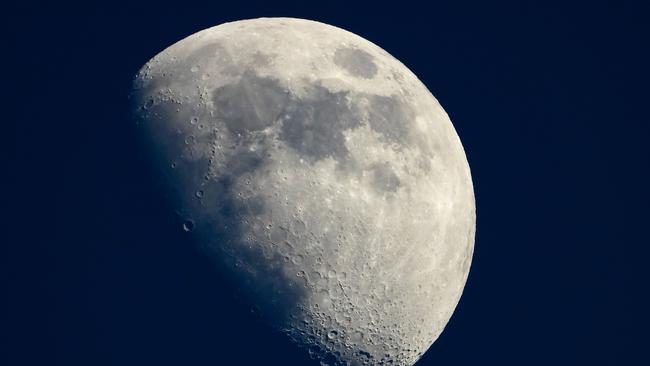Beijing and Moscow join forces to go nuclear on Moon
ILRS aims to be fully operational for lunar research by 2050 and could be used as a base for missions to other planets in the solar system.

China and Russia hope to install a nuclear power unit on the surface of the moon by the middle of the next decade, the Roscosmos space agency has said.
The two nations announced plans in 2021 to begin work in the next few years on a permanently manned research station on the moon’s south pole, before completing construction in the 2030s.
“Today we are seriously considering a project somewhere at the turn of 2033-2035 to deliver and install a power unit on the lunar surface together with our Chinese colleagues,” Yury Borisov, the head of the Russian space agency, told state media.
He said that solar panels would be unable to provide enough energy for human settlements and that only nuclear facilities would be able to guarantee a steady supply of power. Russia was also seeking to build a nuclear-powered cargo spaceship but had yet to resolve how to cool its reactor, he added.
The joint project, named the International Lunar Research Station, aims to have a fully operational station for lunar research by 2050. It could potentially be used as a launchpad for missions to planets in the solar system. Azerbaijan, Belarus, Pakistan, South Africa and Venezuela signed up to the project last year.
It is seen as a rival to the American-led Artemis program, which hopes to establish a sustained human presence on the moon to conduct research, and develop and test technologies for missions to Mars. NASA is also exploring the possibility of setting up nuclear power systems on the moon to power its planned bases.
The Soviet Union was the first country to put a satellite into orbit around the Earth and a man into space but modern Russia’s space program has been plagued by failures. Its Luna 25 lander crashed last year while approaching the moon.
However, China believes Russia’s experience of space exploration twinned with its own economic resources will make the partnership a success, Wang Yanan, the editor of the Beijing-based Aerospace Knowledge magazine, told state media.
While a latecomer to space exploration, China has recorded some notable successes. It has built a crewed space station, landed a robotic rover on Mars and in 2019 became the first country to make a controlled landing on the far side of the moon.
Despite continuing tensions over Russia’s invasion of Ukraine, Moscow and Washington are continuing to co-operate in space: three American astronauts and a Russian cosmonaut arrived at the International Space Station on Tuesday on board a SpaceX Crew Dragon spacecraft after blasting off from the Kennedy Space Centre in Florida on Sunday.
THE TIMES



To join the conversation, please log in. Don't have an account? Register
Join the conversation, you are commenting as Logout